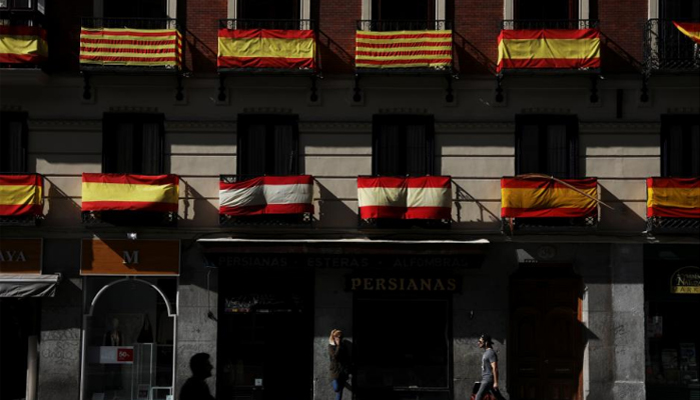Spain plans new elections in Catalonia to end independence bid: opposition
October 21, 2017

MADRID: The Spanish government has secured opposition support for dissolving Catalonia’s parliament and holding new elections there in January in its bid to check the regional government’s push for independence.
The Socialists — the main opposition — said on Friday they would back special measures to impose a central rule in the region to thwart the secessionist-minded Catalan government and end a crisis that has unsettled the euro and hurt confidence in the euro zone’s fourth-largest economy.
Prime Minister Mariano Rajoy — who wants opposition support to be able to present a united front in the crisis — has called an emergency cabinet meeting on Saturday to pave the way for Madrid establishing a central control in the region.
The government would not confirm whether January elections formed a part of the package, with Rajoy saying only that the measures would be announced on Saturday.
However, a government spokesman saw regional elections as likely.
“The logical end to this process would be new elections established within the law,” said government spokesman Inigo Mendez de Vigo at a weekly government press conference.
It will be the first time in Spain’s four decades of democracy that Madrid has invoked the constitution to effectively sack a regional government and call new elections.
Head of state King Felipe used a prizegiving ceremony in the northwestern region of Asturias to indicate support for the government and affirm the unity of Spain, of which he said, “Catalonia is and will remain an essential part.”
“Spain needs to face up to an unacceptable secession attempt on its national territory, which it will resolve through its legitimate democratic institutions,” said the monarch, a ceremonial figure who sharply criticized Catalan leaders earlier this month.
Rajoy wants as broad a consensus as possible before taking the step, which has raised the prospect of more large-scale protests in Catalonia, where pro-independence groups have been able to bring more than one million people out onto the streets.
Catalan leader Carles Puigdemont —a former journalist who is spearheading the secession campaign — has refused to renounce independence, citing an overwhelming vote in favour of secession at a referendum on October 1.
Regional authorities said around 90 percent voted for independence though only 43 percent of voters participated. Opponents of secession mostly stayed home.
Economic confidence hurt
Spanish courts have ruled the referendum unconstitutional, but Puigdemont says the result is binding and must be obeyed.
The prolonged standoff has caused hundreds of companies to move their headquarters outside Catalonia and prompted the Spanish government to cut its economic growth forecast. The region accounts for a fifth of Spain’s economy.
In a test of investor appetite for Spanish stocks, housebuilder Aedas dropped over 6 percent in its debut on the Madrid stock exchange on Friday, although it later regained losses to trade close to its listing price.











